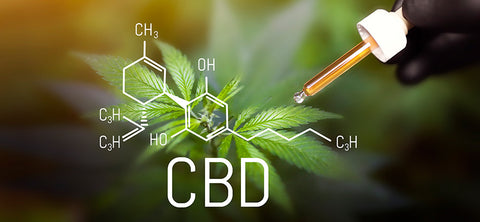In recent years, CBD has become a buzzword in the world of health and wellness. It is touted as a natural remedy for a wide range of ailments, from stress to chronic pain. But what exactly is CBD? In this article, we will delve into the science behind CBD, its many potential benefits, and how to use it safely and effectively.
Understanding CBD and its Origins
Cannabidiol, or CBD for short, is one of over 100 compounds known as cannabinoids found in the Cannabis sativa plant. While THC (tetrahydrocannabinol) is the psychoactive compound responsible for the "high" associated with marijuana use, CBD is non-psychoactive and does not produce intoxication. This makes it an attractive option for those seeking the therapeutic effects of cannabis without the mind-altering side effects.
A Brief History of CBD
Although the discovery of CBD can be traced back to 1940, it was only in the 1960s that scientists began to truly understand its chemical structure and potential medical applications. Over the past few decades, research on CBD has expanded rapidly, and today it is recognized as one of the most promising areas of cannabinoid research.
The Science Behind CBD's Effects
To fully appreciate the potential benefits of CBD, it is important to understand how it interacts with the human body. CBD primarily exerts its effects through its interaction with the endocannabinoid system (ECS), a complex cell-signaling network that plays a crucial role in regulating various physiological processes, including mood, appetite, sleep, and immune function.
Binding and Modulating Receptors
Unlike THC, CBD does not bind directly to the two primary receptors in the ECS, CB1 and CB2. Instead, it acts as a modulator, enhancing or inhibiting the binding of other compounds to these receptors. For example, CBD can block the psychoactive effects of THC by preventing it from binding to CB1 receptors in the brain.
Boosting Endocannabinoid Levels
CBD has also been found to increase the levels of naturally occurring endocannabinoids in the body, such as anandamide, which is often referred to as the "bliss molecule." This can lead to an enhanced sense of well-being and reduced feelings of stress and anxiety.
Potential Benefits and Therapeutic Uses of CBD
Thanks to its wide-ranging effects on the ECS, CBD has shown promise for a variety of therapeutic applications. Below are some of the most notable potential benefits of this versatile compound:
- Anxiety and Stress Reduction: Several studies have demonstrated that CBD may help alleviate symptoms of anxiety and stress, both acute and chronic, making it a potentially effective natural alternative to pharmaceutical medications.
- Pain Relief: CBD's anti-inflammatory and analgesic properties make it a popular choice for those seeking relief from various types of pain, including neuropathic pain, fibromyalgia, and arthritis-related pain.
- Neuroprotection: Preclinical research indicates that CBD may have neuroprotective effects, which could prove beneficial for conditions such as Alzheimer's disease, Parkinson's disease, and traumatic brain injury.
- Epilepsy Treatment: In 2018, the FDA approved Epidiolex, a CBD-based medication for the treatment of two rare and severe forms of epilepsy. This marked the first-ever approval of a cannabis-derived medicine in the United States.
Choosing and Using CBD Products Safely
With the growing popularity of CBD, there has been a surge in products available on the market, from oils to edibles to topicals. It is essential to choose high-quality products from reputable manufacturers and follow proper usage guidelines to ensure safety and efficacy.
Quality Control and Third-Party Testing
As the FDA does not regulate CBD products in the same way as pharmaceuticals, it's crucial to look for companies that prioritize quality control and provide third-party lab test results to verify the purity, potency, and absence of harmful contaminants such as pesticides and heavy metals.
Dosage and Administration
When using CBD for therapeutic purposes, it's important to start with a low dose and gradually increase until the desired effects are achieved. The optimal dosage varies depending on factors such as individual body chemistry, weight, and the condition being treated. Consulting with a healthcare professional experienced in cannabinoid therapeutics can provide invaluable guidance when choosing an appropriate dosage regimen.
The Future of CBD Research and Clinical Applications
The rapidly evolving field of CBD research continues to unveil new potential applications and further our understanding of this fascinating compound. As clinical trials and well-designed studies accumulate, we can expect to see more evidence-based recommendations and potentially novel therapeutic approaches involving CBD in the years to come. In the meantime, those seeking natural alternatives to support their health and well-being may consider exploring the many benefits that CBD has to offer.



